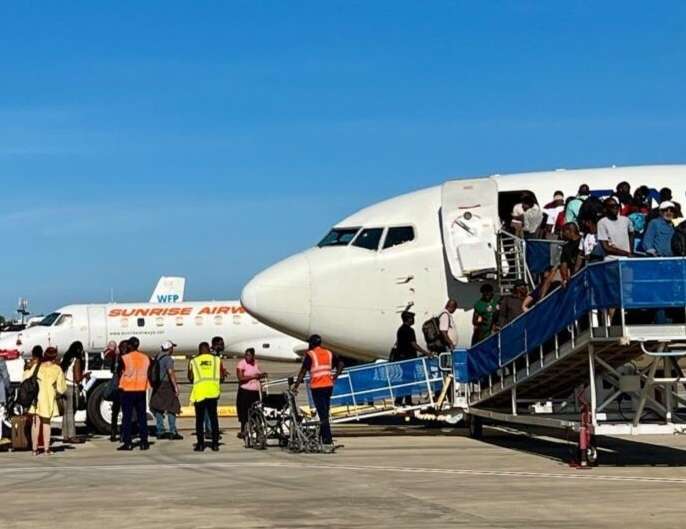Reinforcement of Kenyan Police Contingent in Haiti: 200 Additional Officers Deployed.
The arrival of 200 Kenyan police officers in Haiti marks a significant step in the ongoing international effort to combat the rampant gang violence plaguing the Caribbean nation. These officers join a pre-existing contingent of over 600 Kenyan personnel already deployed as part of a U.N.-backed multinational force. This force, comprising police and soldiers from various countries including Jamaica, Guatemala, and El Salvador, works in conjunction with the Haitian National Police to address the escalating security crisis. The gangs, wielding superior firepower and numbers, have effectively seized control of large swathes of the capital, Port-au-Prince, creating a volatile and dangerous environment for civilians. The U.N. mission’s role in establishing security is paramount, given the overwhelmed state of the Haitian police force.
The deployment of the Kenyan officers was briefly jeopardized by a recent announcement from the U.S. government regarding a freeze on foreign aid, impacting a $13.3 million allocation intended for the U.N. mission in Haiti. However, the State Department subsequently approved waivers, releasing $40.7 million in aid for the mission and the Haitian police. This financial reprieve, coupled with the recent delivery of essential armored equipment, ensures the mission’s continued operation. While the initial funding freeze caused concern, the U.N. mission’s force commander assured that the frozen funds represented a small fraction of the overall assistance received. He emphasized the ongoing logistical, financial, and equipment support from the U.S. and other partner nations, reaffirming the mission’s commitment to stabilizing Haiti. Sustained and predictable funding remains crucial for the mission’s success, requiring contributions from all states, particularly those within the region, to address the root causes of instability and mitigate the pressures driving migration.
The Kenyan-led U.N. mission confronts a formidable challenge in Haiti, a country grappling with deep-seated issues stemming from the devastating 2010 earthquake and a prolonged political vacuum. The absence of a functioning government, coupled with unchecked gang violence, extreme poverty, and widespread displacement, has created a complex and volatile situation. Last year alone, nearly 6,000 people were killed in gang-related violence, highlighting the severity of the security crisis. The influx of nearly 1 million internally displaced people due to gang violence, a threefold increase from the previous year, further underscores the humanitarian crisis unfolding in Haiti.
The international community, recognizing the gravity of the situation, has rallied to support Haiti’s stabilization efforts. The U.S., a key partner in this endeavor, has expressed its commitment to supporting the U.N. mission and the Haitian police. U.S. Secretary of State Marco Rubio’s conversation with Kenyan President William Ruto, thanking him for Kenya’s leadership of the mission, exemplifies this international collaboration. The U.N. mission, with its multinational force, plays a crucial role in providing security support to the overwhelmed Haitian police, enabling them to combat the gangs and restore order. The successful implementation of this mission is not only vital for Haiti’s stability but also for regional security, as it aims to address the root causes of migration and prevent further destabilization.
The U.N. mission’s mandate extends beyond security provision; it encompasses broader efforts to address the underlying socio-economic issues fueling the crisis. This includes supporting the transitional governing body in its efforts to restore political stability, strengthen institutions, and promote economic development. Addressing the pervasive poverty, lack of opportunities, and systemic corruption that contribute to gang recruitment and violence is crucial for long-term stability. The international community’s continued financial and logistical support, coupled with the commitment and expertise of the multinational force, is essential for the success of these endeavors.
The deployment of the Kenyan police officers represents a tangible step towards stabilizing Haiti’s security situation. Their presence, combined with the ongoing support from the international community, offers a glimmer of hope for a country struggling to overcome a multitude of challenges. The U.N. mission’s success hinges on the sustained commitment of all stakeholders, including the Haitian government, civil society organizations, and international partners. A comprehensive approach, addressing both the security and socio-economic dimensions of the crisis, is critical for achieving lasting peace and stability in Haiti. The international community must remain steadfast in its support, providing the necessary resources and expertise to empower the Haitian people to rebuild their lives and secure a more peaceful future.
Share this content:












Post Comment